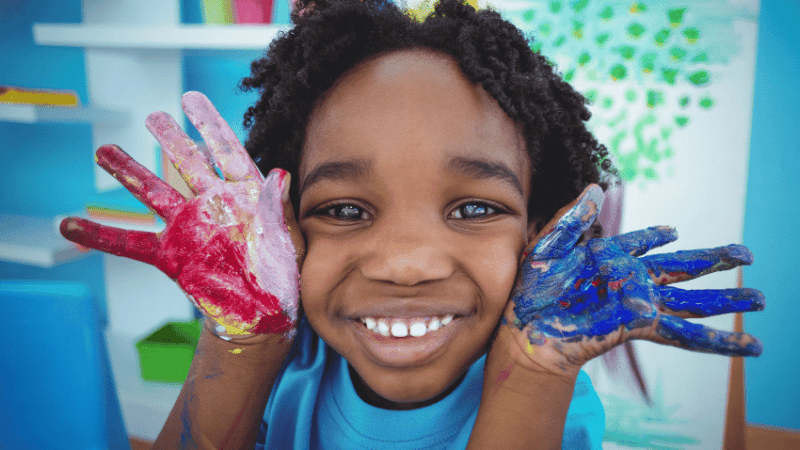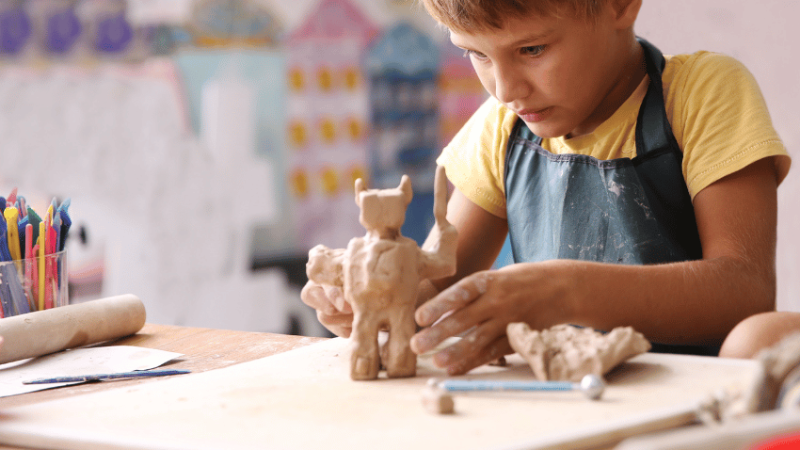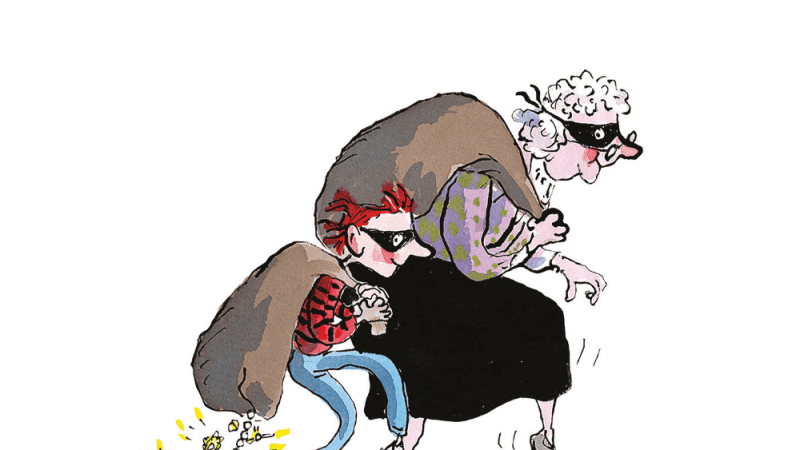Real wellbeing allows for a creative curriculum and empathetic children at this school
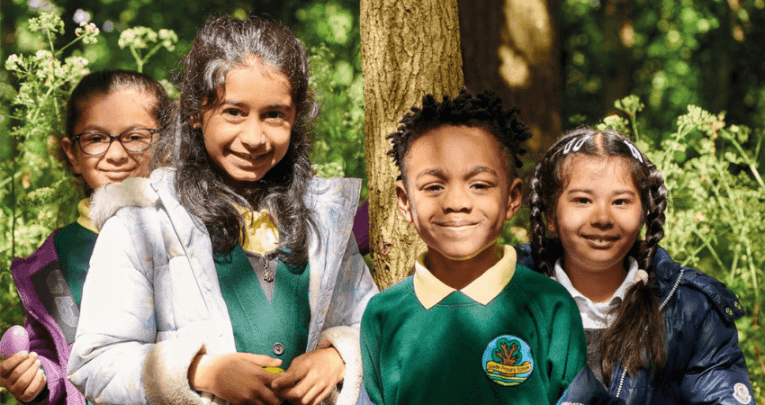
An understanding of the natural world and exposure to culture are top priorities for Glade Primary

- by Charley Rogers
- Editor of Teach Primary magazine
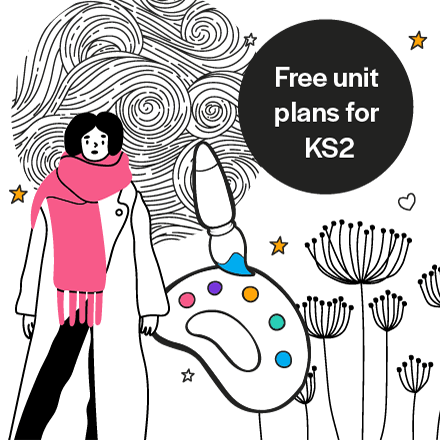
As soon as I entered Glade Primary School, I was quickly ushered into their on-site woodland area, to observe an outdoor lesson.
As we walked into the forest, the traffic sounds and tarmac of the outer-London borough of Ilford quickly disappeared to reveal a pastoral vision of children singing and hugging trees.
Now, this may, on first reading, sound a little disturbing, but let me clarify – we were viewing a hands-on music lesson, where children were singing a song about trees, and were encouraged to use their imaginations to ‘hear’ what the trees might say. The Year 2 class were absorbed in the song, and clearly revelling in the outdoors.
What this might not immediately illustrate, is that I was at Glade during SATs week.
However, rather than an atmosphere of stress and strain, the whole school seemed remarkably relaxed. Although teaching and learning are inevitably a high priority for every year group, it’s equally as important to make sure pupils feel safe and comfortable, says headteacher Farzana Hussain.
“We can’t build on education until we know we’re looking after everyone’s wellbeing; staff and pupils,” she says. “It’s the strong foundation that we need to grow.”
As a rights-respecting school, Glade has been focusing on wellbeing as a core curriculum driver for some time, but when they came across a Quality Mark for wellbeing, they jumped at the chance.
“We didn’t want to just get a badge or a certificate as a tick-box exercise,” explains Farzana, “but rather we wanted to use the award as a tool to self-evaluate and assess where we were as a school, in terms of both pupil and staff wellbeing.”
The senior leadership team was also keen to highlight the great things the school was already doing, and celebrate some wellbeing initiatives that may have not previously been called out.
“We sometimes dismiss great things as ‘just what we do’,” says Farzana, “so we felt it was time to really shine a light on them.”
School profile
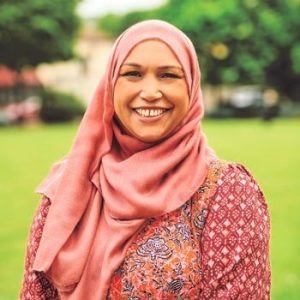
Name: Glade Primary School
Headteacher: Farzana Hussain
Location: Ilford, Essex
Ofsted rating: Good
Size: 472 pupils
Extra info: Glade Primary is a London Borough of Redbridge Community School
Outdoor learning
To take you back to our woodland scene, a lot of Glade’s arts provision takes place outdoors (at least when the weather’s good enough; there are ‘nature classrooms’ for when it isn’t).
Exposure to culture and engagement in the natural world is very important to the team here. The next lesson I got to see, for example, was a Year 6 survival skills workshop on building fires, and not only did it make me wish I had had such experiences during my own primary years, but it highlighted the respect that pupils have for one another.
As we approached the purpose-built firepits, shouts of “We did it! Teamwork!” could be heard, and the squabbling you’d expect amongst a group of 10- and 11-year-olds setting fire to cotton wool was remarkably absent.
Children were readily helping each other with the difficult task of using a flint to make a spark and the lesson was rounded out with toasting marshmallows around their central fire.
All the while, class teacher Mr Merchant was discussing with the pupils the chemical requirements for fire (fuel, oxygen, heat, etc), and the groups of children were conferring about the amount of each element they would need to help their fire along.
But it wasn’t just hands-on skills that were being developed. Another outside lesson, this time focused on learning about Homer’s Iliad, was next.
If I asked you to describe a lesson on poetry or classics, I imagine that a Year 5 pupil dressed up in a giant crisp box wouldn’t be part of it.
Enter Jonny Walker – poetry workshop leader, and instigator of this dramatic lesson. The children were fully absorbed in their re-enactment of the battle that wounded Achilles, wearing costumes they’d made themselves and, with Jonny’s help, bringing this crucial scene from the epic to life.
“By teaching this topic over six weeks, we’re able to check back with the children really often and build in lots of different storytelling techniques, so that they’re able to hold on to the story,” he says.
In order not to overwhelm the children with the heavy content of the Iliad, and to make sure everyone can participate, Jonny builds up knowledge week by week, making sure to draw out elements that will appeal to his young audience.
“The comedic side of Homer plays a big part in that,” he explains, “and to start with, I’ll take volunteers to act parts out, but week by week their willingness grows, so eventually, like you saw, every child is active”.
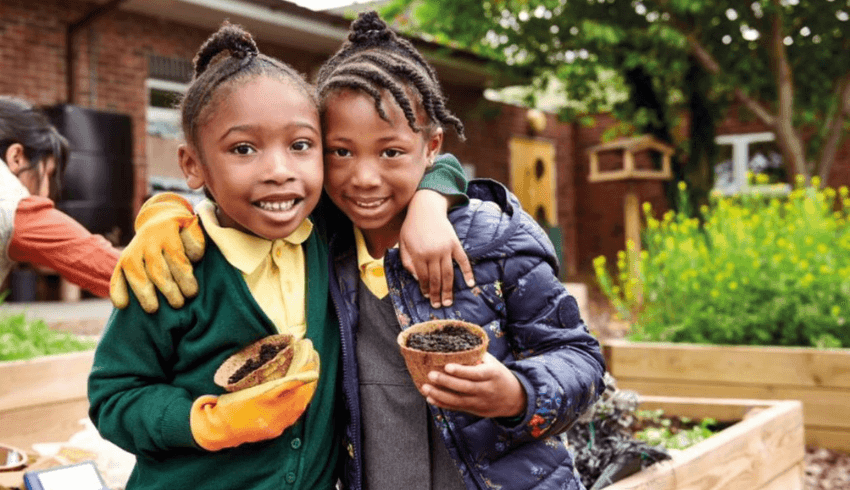
Representation matters
This level of inclusion is essential at Glade, and something Farzana and her team are constantly working on. “We’re really consciously focusing on representation at the moment,” she says.
“It’s a lot of work, and we realise it’s not an overnight fix, but we want to make sure our children are represented in the curriculum.” Pupils also have ownership over their identities at school. “I didn’t want this to be top-down – to all come from us,” explains Farzana.
“We follow British Values, but one of them is about mutual respect and tolerance. That wording didn’t ever sit right with me, though – nobody wants to simply be tolerated, we want to be celebrated.”
The rest of the staff take this on board, too. “Jo Porter, our art lead, noticed that the entire primary art curriculum focused on white, European men,” says Farzana, “so we have worked to include more female artists, global figures, and artists with differing needs – there are musicians for instance that are deaf, or blind, and we want to include as many of them as possible, to show our children that everyone can be included, and there is no ceiling to creativity.”
Every subject lead has delved into the curriculum, Farzana says, and the staff recently had an INSET day based entirely around exploring diverse books.
“I want my children to be exposed to all sorts of different points of view,” she adds, “so they learn to accept people for who they are, even if they seem ‘different’.”
These links don’t just exist in literature, either. The school has also been working with the British Council to connect with schools in the US, and during lockdown, pupils were able to video conference with the Manhattan School of Music, and have a cultural exchange with the students there.
Glade even made it onto ITV News for their efforts, not only to continue the children’s learning, but for bolstering their wellbeing with this kind of contact.
“Louisa Willers, our LKS2 phase leader, was leading on the video conferencing,” says Farzana, “and because she was so passionate about it, it worked really well.”
There’s certainly something to be said for the passion of the staff at Glade. Louisa’s use of online tools over lockdown was based largely around helping children stay engaged – both with school and with their community – and as such, she got them involved in all sorts of challenges.
“We wanted to encourage our pupils to perhaps take those steps to go outside, at a time when people were feeling scared and worried. Even going out into the garden, or to a park, can really help your wellbeing, and we also placed a lot of importance on coming together, virtually, as a community,” she says.
Some of the online challenges Louisa and the team organised included the RSPB Wild Challenge, which was made up of 24 activities linked to outside learning, such as investigating bugs children could find outside, and using time in nature to inspire creative writing.
Once pupils were back on campus, the staff took as many lessons as they could outside, teaching in small groups, and this has continued.
Meet the staff
Louisa Willers
LKS2 phase leader and class teacher
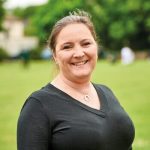
“Another key theme for the children here is communication. They have learned the tools to be able to communicate their thoughts and feelings so they don’t get stuck.
“Some of them do this through poetry, and lots of pupils voluntarily bring in their notebooks or stories they’ve written – Jonny really started that off and it’s trickled through. You don’t see that in many places.”
Jonny Walker
Poetry teacher and workshop leader

“The children here are really sensitive with each other. I’m in the fortunate position of seeing other schools as I work with a few, and they’re all great, but I definitely feel something special at Glade.
“I’m teaching Year 5 at the moment, and the relationships that children have with each other are really, really nice. There’s a lot of work [behind the scenes] that goes into that.”
Sue Jones
Wellbeing lead & SENDCo
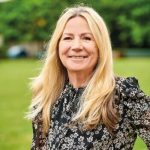
“Glade pupils know how to proactively take care of their own mental health and wellbeing, because we’ve helped them develop strategies.
“And the main thing is that they realise there’s no stigma around asking for help at school. We ran a campaign on this, to show that school is a safe space, and they don’t need to feel embarrassed about discussing these issues. “
Sumana Jain
Year 6 teacher and UKS2 phase leader

“We’ve got a really diversified curriculum, so we celebrate all sorts of different cultures here.
“For example, we’ve been reading stories from the Caribbean recently, and that’s extended out into other subjects, so we had a music teacher bring steel drums in, and we’ve explored samba and salsa dancing. So much has come out of that one book we looked at in English – it’s real representation.”
Focused support
There is also a more targeted approach to wellbeing, for those who need it. Like many schools, Glade has mental health first aiders and staff that are trained in emotional literacy.
But more unusually, they also have an on-site counsellor who is a professional therapist, and the school pays for this private service one day per week so that any staff or pupils that may need the support can access it for free.
“There’s no feedback to the school from the counsellor,” explains Farzana, “because ultimately, we just want the process to be impactful for those that need a little extra support.
For example, some children have experienced bereavement, so it’s great for them to be able to speak to a professional.”
A large part of this mental health provision, says Farzana, is to help children become more resilient. “Some of our Year 6 pupils will apply to selective schools in the area,” she says, “but no matter where they go, we want them to feel confident in their abilities.”
This goes for staff, too. Glade’s CPD offering is “very personalised,” says Farzana, and staff turnover is low (Louisa has been at the school for 21 years).
“We’re very lucky that lots of our staff have been here a long time,” she explains, “but even if they should choose to go somewhere else, we’re happy to train them in the areas they’d like to develop, because whatever school a teacher is at, they’ll have an impact on children, and that’s what we’re all in this profession for.”
Teachers are even encouraged to visit other schools, so that they can share ideas and moderate work with peers. “We’ve hosted cross-school events, where teachers from Year 2 to Year 6 came and moderated work together,” Farzana explains.
This can help keep staff from getting complacent and falling into bad practices, she says, as well as giving them the chance to share skills and connect with fellow educators.
Another reason staff are encouraged to learn from one another is to ensure that training isn’t always top-down, and that teachers who aren’t in the senior leadership team still get a chance to share their valuable expertise.
Farzana is also very keen to avoid asking staff to complete tasks “for the sake of it”. “We don’t ask them to do anything if it doesn’t have an impact on the children,” she says. “We’ve had a good debate recently about planning and marking. But the main question for me is, who are you doing it for? If staff are planning or marking for SLT, we’ve got something wrong. Everything teachers do should be helping children move their learning forward, not just ticking boxes.”
Everything that happens at Glade Primary is carefully considered through the lens of wellbeing, and helped along with a healthy dose of creative arts.
Whether it’s end-of-term BBQs for staff, or on-site camping for Year 6s, the point of all activities is to build community and make use of the resources the school has to make everyone’s day that little bit brighter.
One other thing that Farzana says she is particularly proud of, is the camaraderie and professionalism amongst staff of all levels. “You could go into any of our classrooms, and I bet you would be hard pressed to distinguish between teachers and support staff,” she says.
“That’s a great sign for me that there is no ‘us’ and ‘them’, there’s just a team, all working together for the same goal – for the children.”
Like the Year 6 class making fires, then, respect is the key to a harmonious existence. And isn’t that just what art teaches us? That at the end of the day, we’re all in this together, and celebrating different points of view can be truly beautiful.
Glade is a pretty good demonstration of that – inside and out.
Pupil voice

Abdul: “We don’t have to just do English and maths all the time – we have lots of outdoor learning and extracurriculars. And in our subjects, we don’t just focus on one race, we go around the world.”
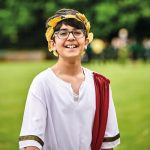
Zaviyar: “Whatever subject we do, the teachers try and make it fun, so school isn’t boring! I’ve enjoyed doing the Iliad reconstruction, because it helps me understand what it all means.”

Emaan: “We had fun in science recently, measuring how high we could jump, and the height of our hips. I like to learn new things at school, because the work is interesting.”

Veer: “You never know quite what you’re going to be doing next, at Glade. We’re going on a poetry retreat soon, to the New Forest, so I’m really looking forward to that!”
True inclusivity
Making sure all pupils feel welcome and valued is a central driver at Glade. In light of this, pupils with special educational needs and disabilities are fully integrated into mainstream classes, supported by LSAs.
“I’m proud of how inclusive our school is,” says Farzana. “We have children with special educational needs in each class, but you wouldn’t necessarily notice unless I pointed them out. And that’s how we think it should be – totally inclusive.”
Some pupils do require specialist support outside of their classrooms, Farzana explains, and the school has a sensory garden to cater for children who require that extra time out.
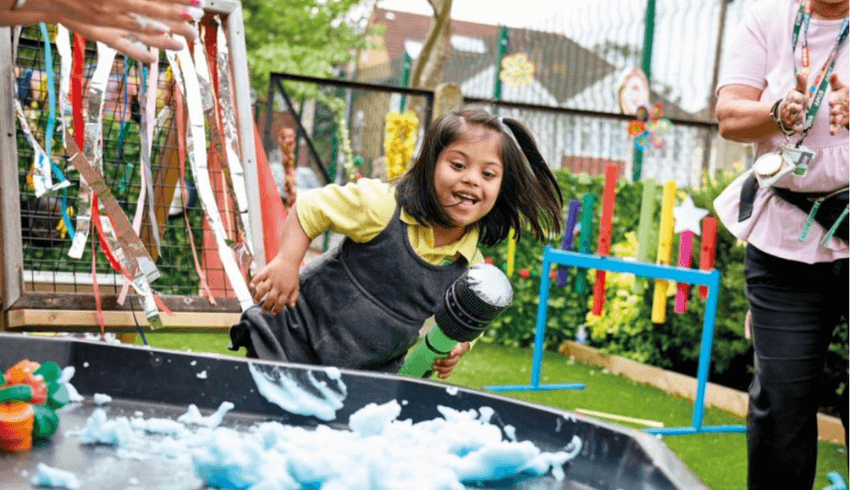
“In some schools, SEND pupils do the register with classmates, but then go off to different rooms to complete their lessons. There is of course a place for schools that work in that way, but it’s not what inclusivity means to us,” she says.
Rather, at Glade, Farzana explains, though children might spend small parts of their day in the sensory garden, or participating in interventions, for the majority of the time they’re in a mainstream classroom with their peers.
The rest of the children work well with this setup, too. “Honestly, children are better than most adults when it comes to working alongside their SEND peers,” says Farzana.
“They don’t blink an eye. Even with children who have behaviour issues, they know that meltdowns can happen, and that they just need to carry on with whatever they’re doing – there are always adults around to help.”






